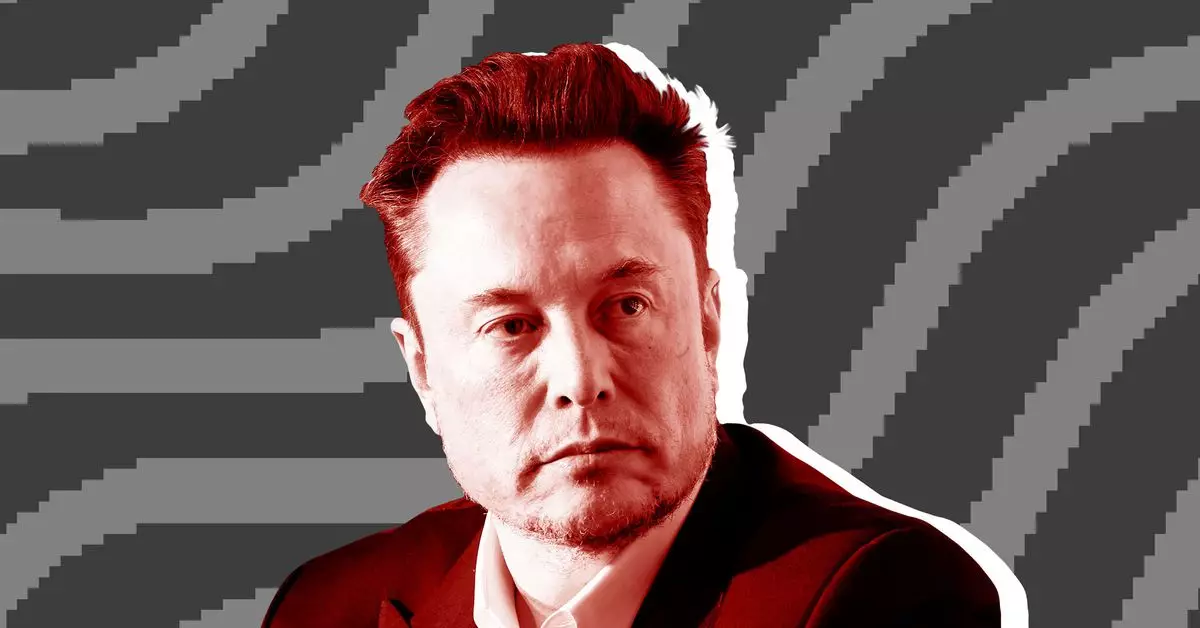In a bold political landscape, newly elected President Donald Trump has ushered in an avant-garde initiative known simply as the Department of Government Efficiency, or DOGE. Appointing figures like tech mogul Elon Musk and entrepreneur Vivek Ramaswamy to lead this department highlights a significant shift in how government operations may be perceived and conducted in the future. With a mission to dismantle bureaucratic structures and streamline federal operations, DOGE promises drastic reforms that resonate with the ongoing public desire for a more responsive and efficient government.
The symbolism behind the acronym, DOGE, is not lost on observers, as it evokes the popular cryptocurrency that shares the name. This branding mirrors a broader trend in political discourse, where technology and finance are increasingly interwoven with public governance. In a time when governmental inefficiency is often criticized, the creation of DOGE could either serve as a groundbreaking effort to revamp federal processes or a speculative enterprise that ultimately collapses under the weight of its aspirations.
Musk and Ramaswamy are tasked with ambitious objectives, including the cutting of $2 trillion from the federal budget. While the stated goals of trimming excessive spending and bureaucratic inertia are commendable, the practicality of such measures raises pressing questions. Critics have already pointed out that achieving these savings without touching critical programs like Social Security or the defense budget may be nearly impossible. Despite Musk’s historical acceptance of potential short-term ramifications, the nuances of implementing these reforms will likely provoke considerable debate among stakeholders.
Additionally, the timeline for the completion of their work—by July 4, 2026—suggests a fraught path ahead; expectations for transformative change within this period may produce significant public pressure. Moreover, the potential for sweeping structural reforms to inadvertently harm essential services creates a dilemma that Musk and Ramaswamy must navigate with precision and care.
The DOGE initiative represents more than just a fiscal agenda; it embodies a philosophical clash between traditional governance and market-driven methodologies. By sourcing its leadership from the tech and entrepreneurial sectors, DOGE signals a preference for an outsider’s perspective on government operations. Both leaders have vocalized a commitment to market-based efficiencies—an approach historically favored by conservative ideologies, yet fraught with its own set of complications.
Market-driven reforms may lead to efficient budget allocation; however, they also pose the risk of commodifying government functions, hence risking access and equity—vital components of governmental responsibilities. The challenge lies in finding a balance between efficient administration and maintaining equitable services that serve the broader public interest.
Moreover, the average American’s engagement with DOGE cannot be understated. Trump’s statement emphasizes the need for governmental accountability to “WE THE PEOPLE.” However, whether citizens feel genuinely invested in or included in this initiative remains a pertinent concern. Success will depend not solely on top-down directives but also on a grounded collaboration with communities affected by these changes.
As history has shown, shifts in government efficiency must consider the voices and needs of constituents to avoid alienating the very populace they seek to serve. Enhanced transparency and regular communication are essential if DOGE aims to gain public trust and make credible progress toward its lofty objectives.
As we enter a new chapter in governmental transformation, the legacy of the DOGE initiative will largely depend on how successfully Musk and Ramaswamy navigate the complexities of implementing their vision. Will they manage to translate the entrepreneurial strategies that have driven success in their sectors to public governance? Or will this be another instance of overambition falling short of practical reality?
Only time will tell if DOGE will revolutionize the federal landscape and provide a blueprint for future administrations or if it will succumb to the challenges typically associated with governmental reform. Enthusiastic supporters and cautious skeptics alike will closely monitor this experiment in efficiency, each hoping to influence its outcome based on their perspectives on the nature of governance itself. Ultimately, the success of DOGE could chart a new course for how federal agencies operate in an increasingly complex world.


Leave a Reply